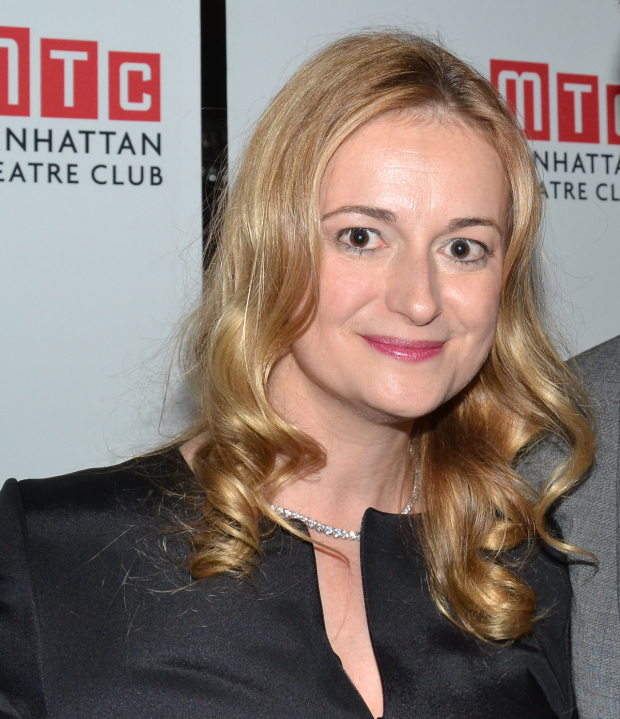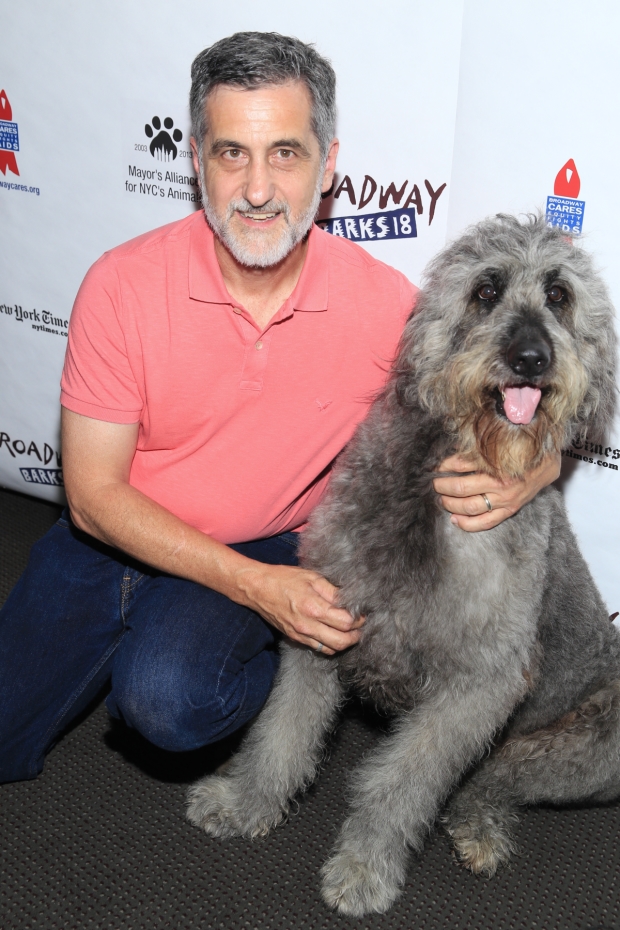Because of Winn-Dixie Scribe Nell Benjamin on Writing for Dogs and Strong Girls of All Ages
With ”Mean Girls” on the horizon and ”Legally Blonde” in the past, Benjamin’s youngest female protagonist doles out unique challenges.
Nell Benjamin was half of the Tony-nominated songwriting team behind that opening number, while Broadway institution Bill Berloni was the dog trainer behind that moment of canine theater magic. After leaving "Woods (comma) Elle" behind, Berloni recruited Benjamin to write the book and lyrics for his newest "pet" project — a musicalized version of the Kate DiCamillo novel Because of Winn-Dixie, which follows the relationship between a lonely little girl named Opal and the stray dog she meets in a Winn-Dixie grocery store.
"Bill's wife, Dorothy, really spearheaded the early incarnations of this show," recalled Benjamin, who, with composer Duncan Sheik (Spring Awakening, American Psycho), is now on her third developmental production of the Winn-Dixie musical at Alabama Shakespeare Festival (following earlier productions at Arkansas Repertory Theater and Delaware Theatre Company). "Having an animal do tricks is a great theater tradition, but Bill has felt that the emotional life of an animal and its connection with a human would be an amazing thing to see onstage."
Fully delving into that relationship requires the dog to be more than just Little Orphan Annie's sidekick or Audra McDonald's arm candy. Bowdie (a Poodle mix last seen as Nana in NBC's Peter Pan Live!) is truly starring in the show alongside 13-year-old Gabriella Pizzolo (Fun Home), and it's Benjamin's job to bring that indescribable love — or more importantly, kindness — between girl and dog to life onstage.

(© David Gordon)
Alabama Shakespeare will be your third mounting of Because of Winn-Dixie. Has it been a slow process to figure out how to build a show around a dog as the main character?
This production is to figure out the delicate dance of making it work. Unfortunately the only way to do that is to put a dog on the stage with all the furniture and lights and audience and see what the reactions are. If you do a reading of a script with no dog there, you have no sense of what's going on in the show. He's our lead. Imagine doing a reading and not ever seeing your star. That would be problematic. The good news is, our animal director Bill [Berloni] and I work together. He tells me, "I've got this great thing that [Bowdie] can do." And I tell him, "Well, at the moment what I need him to do is be scared." And he says, "I can find a way to make him run if he's scared." Things like that.
When the Berlonis brought this idea to you, what was your initial reaction?
I'll be frank, my first reaction was, "I don't know, I don't want to do a children's musical." But I read it and it sort of stuck with me. There's a surprising amount of darkness and mature themes going on, so it's not just "dog meets girl, everybody's happy." It's "dog gives everyone the courage to come together and deal with their issues." And then when we talked about composers…I had been dying to work with Duncan [Sheik], so I said, "He'd probably never in a million years even consider doing this, but we should call him." He thought the darkness was there, too, and he said, "I know how to write for this place and these people." So he took a chance on us, too, and his work in this is so stunning. I'd love it to not be what you think you're gonna get when you walk into a Winn-Dixie musical.
You were recently announced as the book writer and lyricist for the new Mean Girls musical, as well. Are you working on both projects simultaneously?
If I'm in the rehearsal room for Winn-Dixie, I really want to be focusing on Winn-Dixie. But we're still working towards the draft [of Mean Girls] that we're going to start working on in the labs. And obviously it's a hugely exciting project for me. I mean, it's fabulous, so I can't get it out of my head even if I wanted to. And I don't want to. I get to sit in a room with Tina Fey and Jeff Richmond, and now Casey Nicholaw. It's the dream.
Between Winn-Dixie, Mean Girls, and Legally Blonde, you're working your way through all the stages of girlhood.
Are you sensing a theme? I want to write strong female characters. All ages are interesting to me because you face different issues at different ages. But sometimes, unfortunately, you face the same issues at all different ages. [Laughs]
Does having a daughter change anything about the way you write your female characters?
If anything, since I had my daughter, I've been protective of my female characters in a way that I wasn't before. Before I would just let them go through hell, because we all go through hell and that's the interesting thing — how we deal with it and get out of it. Once you're in the habit of protecting a young girl, it's hard not to protect your young female characters. But there's not gonna be any drama if nothing ever happens to your young female character.
Lucky for Opal (played by Gabriella Pizzolo) she gets to go through the drama with an adorable dog by her side.
They just adore each other. The relationship is about this girl and this dog falling in love with each other and changing each other's lives, and that's actually happening. She loves [Bowdie]. He lights up when she walks into the room. And that's really what we want the audience to see — how kindness like that can change them.
Is that what you'd say the musical's overarching message is?
We as a society are judged on how we treat the most vulnerable, and Bill has a lot to say about that, about what he calls the human-animal bond. We really do have an ethical duty to protect people who need our protection and to help people who need our help. And somewhere in this hopefully totally non-preachy fun show is the kernel of that idea. I think most people, when faced with a stray dog, when faced with cruelty and loss, want to do something, and I'd really like to encourage them to think that that's a good response. I don't think you have to be a dog person to be kind and loving to dogs, and I don't think you have to be a people person to be kind and loving to people. The operative word is "kindness."

(© Tricia Baron)







